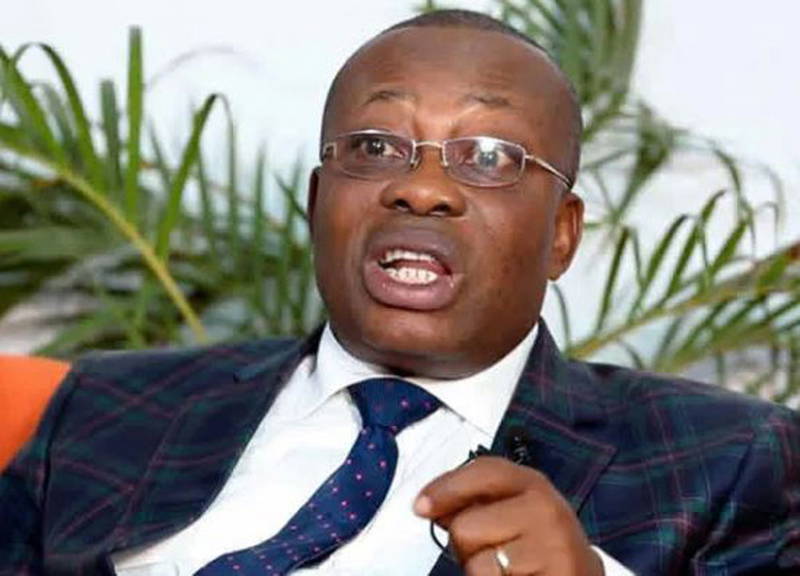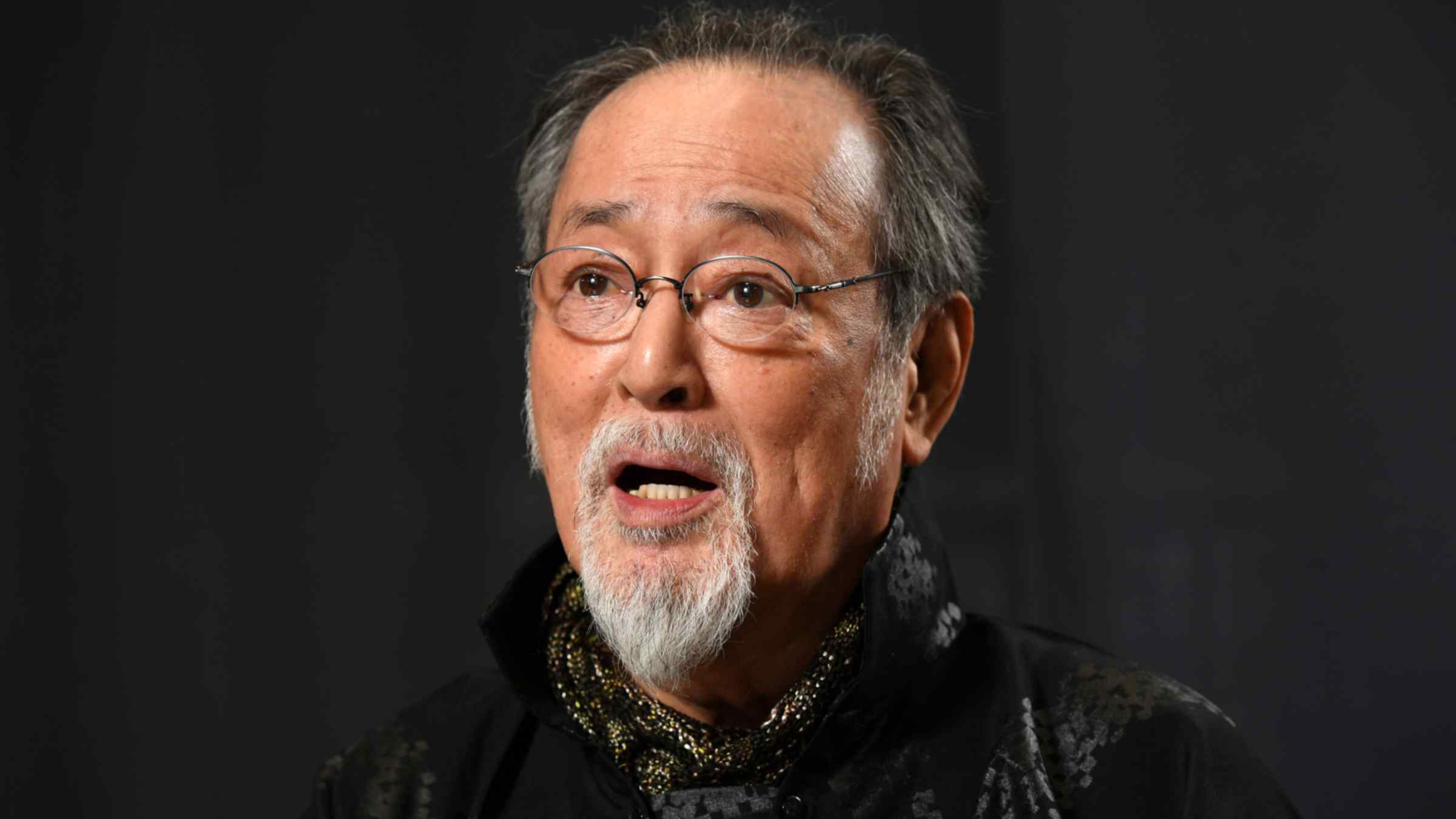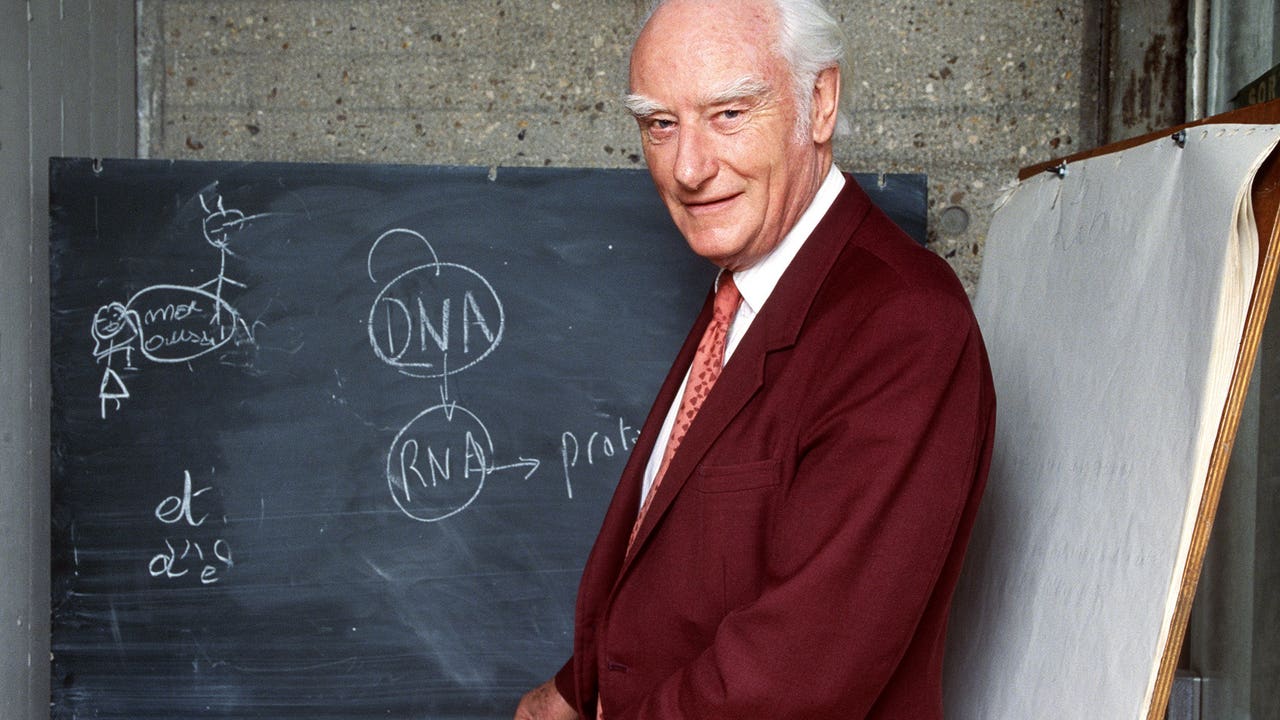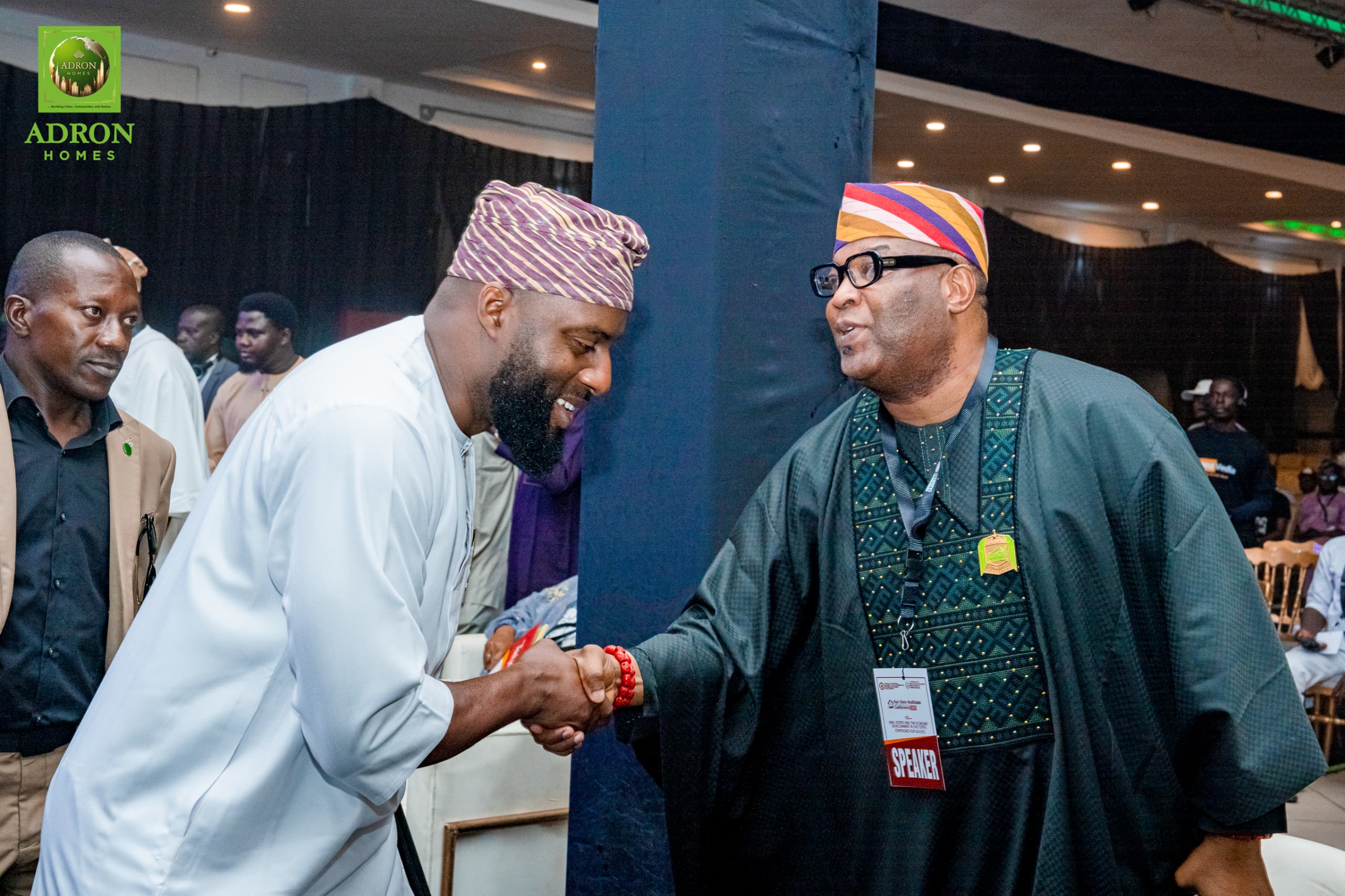Personality in Focus
Renaming of Streets in Lagos: A Dangerous Descent into Tribal Politics and Hatred

By Monday Onyekachi Ubani
The recent decision by the outgoing Chairman of Bariga Local Council Development Area (LCDA), Hon. Kolade Alabi David, to rename the popular Charly Boy Bus Stop to Baddo Bus Stop in honour of Nigerian artist Olamide and others may appear harmless on the surface. It may even seem laudable to those who admire the artist’s impact on Nigerian entertainment.
However, beneath the surface lies a disturbing trend that requires urgent national reflection and condemnation, the systematic and silent erasure of certain historical street names in Lagos, especially those reflecting the cultural identity and heritage of non-Yoruba residents.
This is not the first time such a policy has crept into the consciousness of Lagosians. Slowly but surely, what once was a cosmopolitan city that embraced all tribes, cultures, and peoples, is sliding into an ethnocentric experiment where names of streets and public places associated with non-Yoruba citizens are being wiped off the map without justification or consultation.
Let us be clear: this practice is archaic, divisive, and dangerously tribalistic. It has no place in a modern democracy and only serves to take Nigeria back to the Stone Age. In a multi-ethnic federation like ours, unity in diversity must be preserved at all costs, especially by those in leadership positions.
No cogent or official explanation has been given for this disturbing trend. Were the original names imposed illegally? Were they not approved by the same arms of government now reversing them with reckless abandon? Were these names not given at a time when Lagos stood tall as a beacon of national unity, hospitality, and inclusiveness?
The absence of clear policy guidelines or public engagement suggests something more sinister – an attempt to rewrite the cultural history of Lagos in a way that marginalizes certain ethnic groups, particularly the Igbo community, whose contributions to the growth of Lagos are not just historical but ongoing and appreciable.
Nigeria is already hanging on a delicate thread of national unity, strained by insecurity, governance issues, and ethnic profiling. At such a time, any action by public officials, even at the local government level that promotes ethnic division or marginalisation, must be rejected in the strongest terms.
I have lived in Lagos since the 1980s. I built my law practice here. My friends, clients, professional colleagues, employees, and even church members come from different tribes, predominantly Yoruba. I was once a Chairman of Nigerian Bar Association, Ikeja Branch. The Lagos I knew, and still want to believe in, is the Lagos that gives all Nigerians a fair chance at life, peace, and prosperity, regardless of their state of origin.
This rising trend of street renaming based on ethnic calculations betrays the progressive and sophisticated image of the Yoruba people, a people known for education, enterprise, and political sagacity. This is why I am shocked that some Local Government Chairmen in Lagos are leading this wave of retrogressive ethnocentrism, not realising that it undermines the shared values that have held Lagos together as Nigeria’s melting pot.
If Lagos must continue to shine as the commercial capital of Nigeria, then it must be managed with maturity and inclusiveness. Those in government must understand that every policy has consequences – both seen and unseen. The international community, investors, and even ordinary Nigerians watching from afar will interpret these renaming exercises as signs of growing intolerance, state-backed discrimination, and a lack of cohesion within our federation.
If streets named after non-Yoruba figures are being deliberately removed without any history of criminality or impropriety attached to the persons being removed, then what message are we sending? That Lagos is now a state lived by one ethnic group only? Does history and memory have no place in the state’s public policy?
It is not enough to name a street after one musician while simultaneously removing a name (a musician too) that has stood for decades and carries sentimental or historical significance. These acts, however subtle, communicate hostility to coexistence and must be halted immediately.
I write this article not just to condemn but to seek answers. I call on the Lagos State Government and the Ministry of Local Government and Chieftaincy Affairs to explain what informed these recent renaming actions. Were these names removed with the consent of residents? Was there any public hearing or community input?
Policies that alienate, exclude, or erase certain communities are antithetical to the ideals of democracy, federalism, and nation-building. Lagos must not become a theatre of ethnic cleansing through street names. We must reverse this tide before it becomes the new normal.
This pattern of conduct by local government officials in Lagos, if not checked, will erode the minimal gains we have made in promoting national integration. It is uncivilised, unproductive, and ultimately destructive.
Let us be reminded that the greatness of Nigeria, and indeed Lagos – lies not in the dominance of one tribe over others, but in the peaceful coexistence, mutual respect, and appreciation of our rich diversity.
Let aggravated and systemic hatred through public policy be stopped! It is a solemn plea!
Dr M.O. Ubani SAN, a Legal and Policy Analyst, writes from Lagos
Personality in Focus
Veteran Japanese Actor, Tatsuya Nakadai, Dies at 92

Japanese stage and film actor Tatsuya Nakadai, who starred in a string of Akira Kurosawa classics, including the lead role in Ran, has died at the age of 92, his acting school announced on Tuesday.
Nakadai first rose to fame in Japan and internationally under director Masaki Kobayashi, who cast him in his epic anti-war trilogy The Human Condition in the late 1950s and early 1960s.
His acting school, Mumeijuku, did not disclose when Nakadai died or provide further details.
Nakadai had a walk-on role in Kurosawa’s 1954 classic Seven Samurai, but later effectively replaced Toshiro Mifune as the famed director’s leading man after Mifune went his own way.
He played the main protagonist in Kurosawa’s Kagemusha (1980), which won the Palme d’Or, the top prize at the Cannes Film Festival.
Nakadai also portrayed the doomed warlord who divides his kingdom among his sons in Ran (1985), Kurosawa’s adaptation of Shakespeare’s King Lear.
One of his former students, Koji Yakusho, won Best Actor at the 2023 Cannes Film Festival for his role in Wim Wenders’ Perfect Days.
Nakadai continued performing until recently, appearing this year at a theatre in the Noto region, which was still recovering from a deadly earthquake that struck on New Year’s Day last year.
AFP
Personality in Focus
Brain Behind Discovery of DNA, James Watson Dies at 97

American scientist, James Watson, one of the co-discoverers of the structure of deoxyribonucleic acid (DNA), has died at the age of 97.
Watson, alongside Francis Crick, identified the double-helix structure of DNA in 1953, a discovery that transformed biology and medicine. Their work, which revealed how genetic information is stored and transmitted, earned them and Maurice Wilkins the 1962 Nobel Prize in Physiology or Medicine.
“We have discovered the secret of life,” they said at the time.
His death was confirmed by the Cold Spring Harbor Laboratory (CSHL) in New York, where he spent much of his career. Watson led the institution for decades before stepping down as chancellor following controversy over his remarks on race and sex.
Watson’s reputation declined sharply after comments he made suggesting genetic differences in intelligence between races. In a 2007 interview with The Times, he said he was “inherently gloomy about the prospect of Africa”, adding that “all our social policies are based on the fact that their intelligence is the same as ours whereas all the testing says not really.”
He later apologised “unreservedly”, but the remarks cost him his position at CSHL. In 2019, further comments linking race and intelligence prompted the lab to strip him of his remaining honorary titles. “Dr. Watson’s statements are reprehensible, unsupported by science,” the laboratory said in a statement.
DNA was first discovered in 1869, but its role as the genetic material in cells wasn’t confirmed until 1943. The molecule’s structure remained unknown until Watson and Crick built their model, using X-ray images produced by Rosalind Franklin at King’s College London images reportedly obtained without her consent.
Though Franklin died in 1958, she is now widely credited for her crucial role in solving the DNA structure. At the time, however, her contributions were largely overlooked.
Watson also drew criticism for sexist remarks in his 1968 memoir The Double Helix, where he commented on Franklin’s appearance. Despite this, some former colleagues noted that he supported women scientists at Harvard in the 1950s and 60s, when few others did.
In 2014, feeling isolated from the scientific community, Watson sold his Nobel medal for $4.8 million. The Russian buyer later returned it to him.
Born in Chicago in April 1928, Watson was the son of Jean and James Watson, descendants of English, Scottish, and Irish settlers. A gifted student, he entered the University of Chicago at 15, where he became interested in X-ray diffraction, a key technique in revealing atomic structures.
Watson later studied at Cambridge University, where he met Crick and began building models of DNA. After their discovery, he joined Harvard University as a biology professor.
He and his wife, Elizabeth, had two sons. One was diagnosed with schizophrenia, inspiring Watson to continue research into the genetic basis of mental illness.
In 1968, he became director of Cold Spring Harbor Laboratory, transforming it into a leading global centre for molecular biology research, the same institution that later confirmed his death.
Personality in Focus
Aare EmmanuelKing Hails Oyo’s Real Estate Reforms, Urges Policy Continuity

The Chairman and Chief Executive Officer of Adron Group, Aare Adetola Emmanuelking, KOF, has commended the Oyo State Government for its bold reforms in the real estate sector, describing the state as a land of “history, enterprise, and endless possibilities.”
Aare Adetola remarked while delivering a goodwill message titled “The Real Estate Called Oyo State” at the 2025 Oyo State Real Estate Conference, held in Ibadan.
The event, themed “Real Estate and Economic Development in Oyo State: Strategies for Success,” brought together top real estate developers, government officials, and investors to discuss strategies for improving housing delivery and driving economic growth in the state.
Organised by the Office of the Special Adviser to the Governor on Housing and Urban Development in collaboration with the Real Estate Developers Association of Nigeria (REDAN), the conference highlighted the need for policy stability, public-private partnerships, and innovation in real estate development.
In his address, the Speaker of the Oyo State House of Assembly, Rt. Hon. Adebo Ogundoyin, reaffirmed the government’s commitment to transparency and investor confidence through the digitalisation of land records (OYOGIS), improved urban planning, and major infrastructure upgrades across the state.
He also cited the passage of the Oyo State Land Control and Administration Bill, 2023, and the establishment of the Anti-Land Grabbing Task Force as key reforms curbing land disputes and promoting sustainable property ownership. Ogundoyin praised major developers such as Adron Homes and MKH Properties for their role in boosting investor trust in the Oyo property market.
In his goodwill message, Aare Adetola Emmanuelking applauded the administration of Governor Seyi Makinde, FNSE, for maintaining consistency in land policies and governance structures, which he said had continued to attract serious investors to Oyo State.
He recalled that Adron Homes made its foray into Ibadan nearly a decade ago based on the state’s stable policy environment, a decision that has since yielded impressive results. He, however, urged the state government and future administrations to ensure policy continuity, warning that inconsistency could derail the progress already achieved.
The conference ended with a collective resolve by stakeholders to deepen collaboration between the public and private sectors, strengthen regulatory transparency, and create a business environment that will make Oyo State a model for real estate investment in Nigeria.






